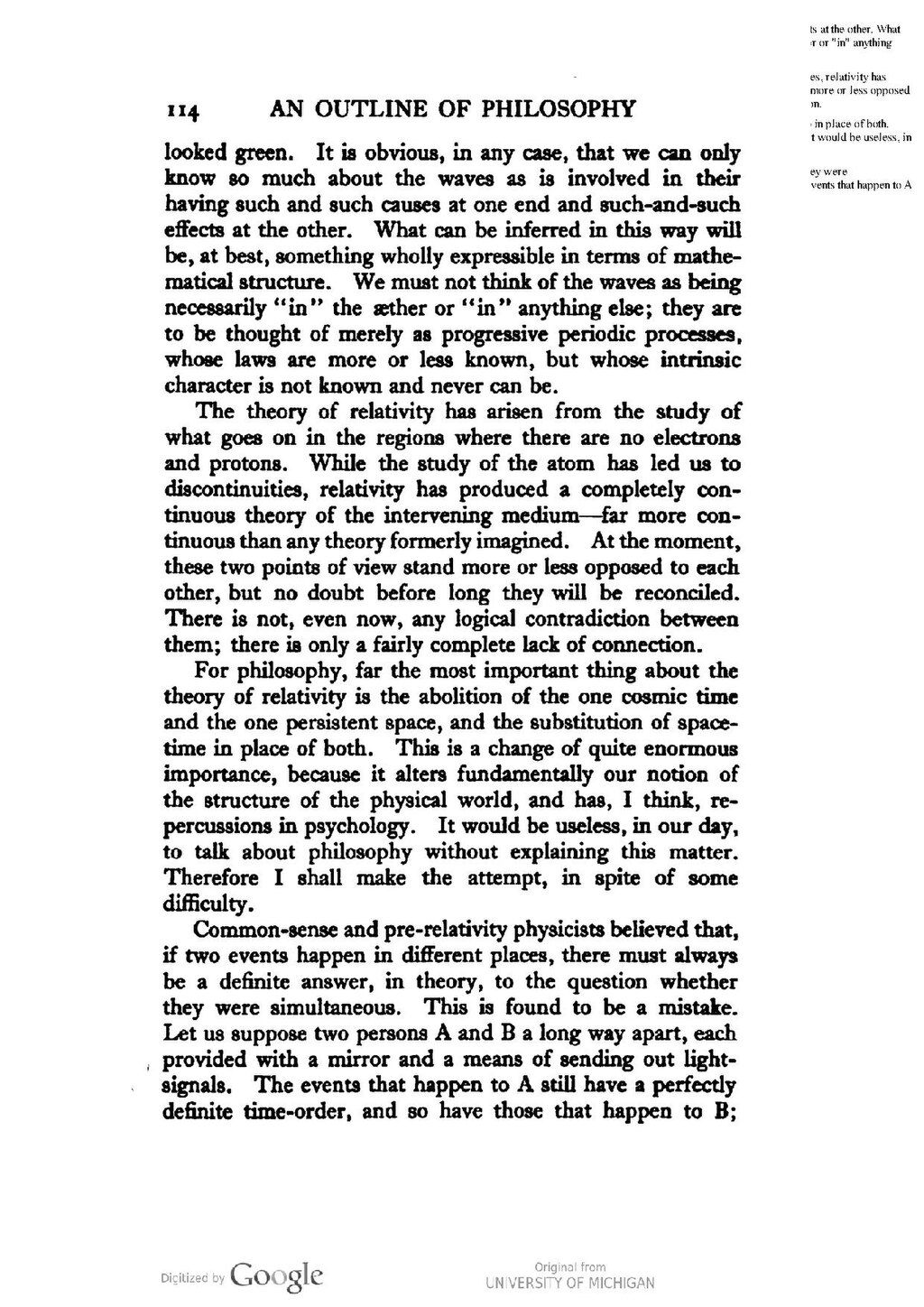looked green. It is obvious, in any case, that we can only know so much about the waves as is involved in their having such and such causes at one end and such-and-such effects at the other. What can be inferred in this way will be, at best, something wholly expressible in terms of mathematical structure. We must not think of the waves as being necessarily "in" the æther or "in" anything else; they are to be thought of merely as progressive periodic processes, whose laws are more or less known, but whose intrinsic character is not known and never can be.
The theory of relativity has arisen from the study of what goes on in the regions where there are no electrons and protons. While the study of the atom has led us to discontinuities, relativity has produced a completely continuous theory of the intervening medium—far more continuous than any theory formerly imagined. At the moment, these two points of view stand more or less opposed to each other, but no doubt before long they will be reconciled. There is not, even now, any logical contradiction between them; there is only a fairly complete lack of connection.
For philosophy, far the most important thing about the theory of relativity is the abolition of the one cosmic time and the one persistent space, and the substitution of space-time in place of both. This is a change of quite enormous importance, because it alters fundamentally our notion of the structure of the physical world, and has, I think, repercussions in psychology. It would be useless, in our day, to talk about philosophy without explaining this matter. Therefore I shall make the attempt, in spite of some difficulty.
Common-sense and pre-relativity physicists believed that, if two events happen in different places, there must always be a definite answer, in theory, to the question whether they were simultaneous. This is found to be a mistake. Let us suppose two persons A and B a long way apart, each provided with a mirror and a means of sending out light-signals. The events that happen to A still have a perfectly definite time-order, and so have those that happen to B;
